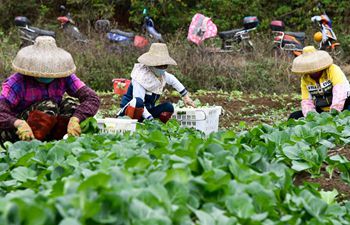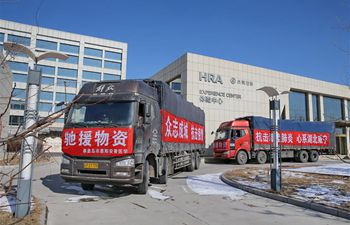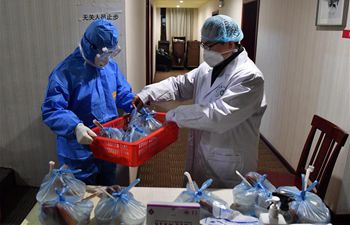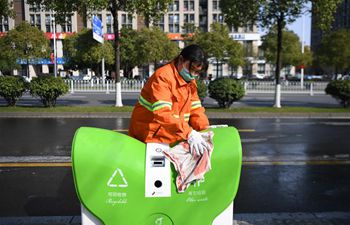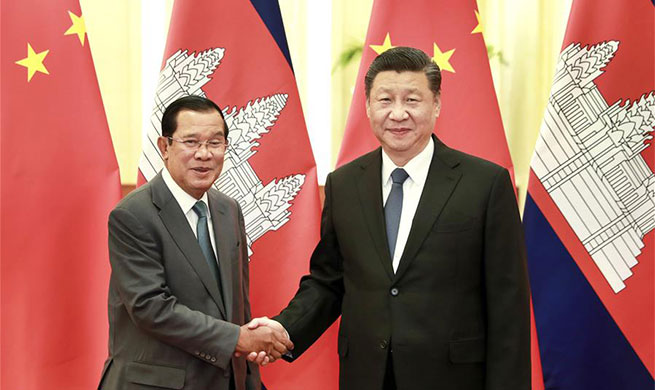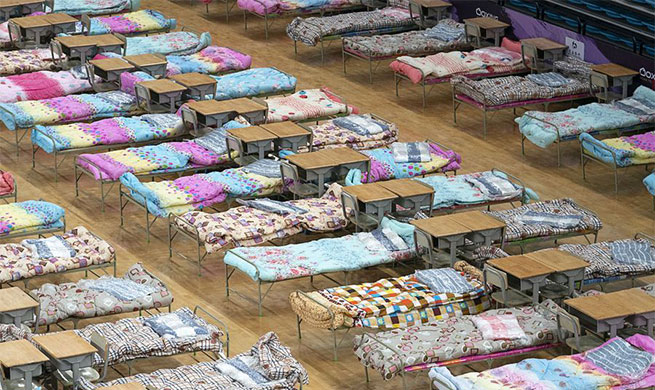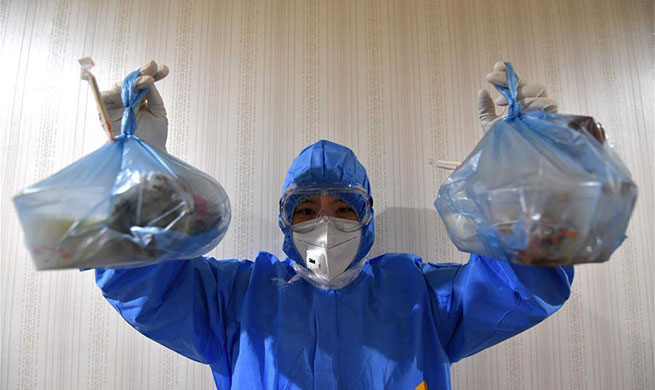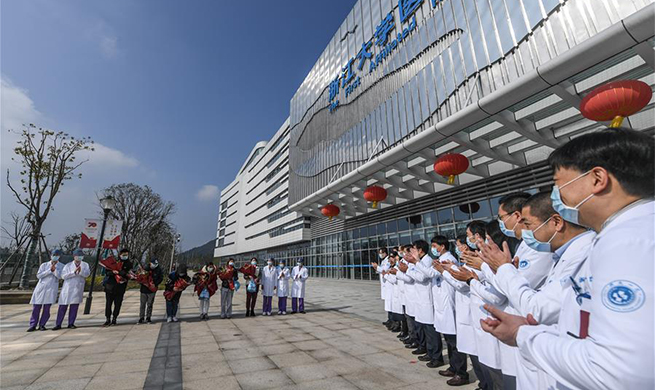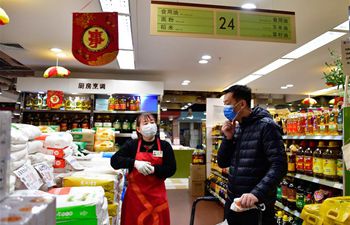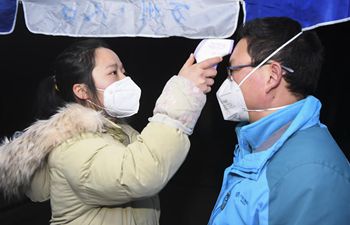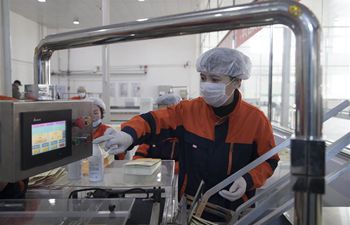by Burak Akinci
ANKARA, Feb. 5 (Xinhua) -- Military operations by the Russian-backed Syrian government forces in Syria's Idlib province constitute a stringent test for Russian-Turkish ties, experts said.
On Sunday, Turkey deployed tanks, armored vehicles and soldiers to its border and sent additional troops to its monitoring stations in Idlib, state media reported.
Early on Monday, seven Turkish troops and a serviceman were killed and 13 others were wounded in Idlib by shelling from Syrian government forces, a grave incident which shows the fragile situation in this region.
"Russia doesn't see its cooperation in Syria with Turkey as a privilege and Moscow's goals in this region doesn't assign as much importance to Turkey as it did a year ago," Hasim Turker, senior analyst at the Ankara-based think tank Bosphorus Center for Asian Studies, told Xinhua.
Turker, a former staff officer, believes that the shelling which resulted in casualties in Turkish army could not happen without the awareness of Russia.
"It seems that Russia is giving a warning to Turkey with this attack, saying that it wants Turkish troops out of this region while Syrian forces are advancing, and it doesn't want Turks to get in the way in Idlib," the analyst said.
Turkish President Recep Tayyip Erdogan threatened on Jan. 31 to launch military action if the situation in Idlib is not resolved immediately.
A cease-fire was brokered in Idlib on Jan. 12, but according to Turkey and the monitoring agency, it has been violated many times since then.
Syrian forces, backed by Russian air forces, have since last week advanced rapidly. They have taken dozens of towns, including the key city of Maarat al-Numan located on the M5 international highway linking Damascus to Aleppo.
The recent campaign has also raised tensions between Ankara and Moscow, which back opposing sides in the conflict. Turkey fears a fresh wave of migrants from Idlib and it has 12 observation posts in the region.
Erdogan repeated that Turkey could not handle a fresh influx of migrants. He said that Ankara will not allow new threats near its borders, even if it meant resorting to military power, as it did in its three previous cross-border operations in northern Syria since 2016.
"We will not refrain from doing what is necessary, including using military force," he warned, adding that his country wants stability in Syria.
Last week, the Turkish leader and members of his government slammed Moscow for failing to take actions in Idlib, while Moscow denied these accusations.
However, Turkey insisted that Ankara would not want tensions to escalate further with Moscow because of fears that a disruption in their partnership could stir a refugee influx towards Turkey and harm their economic cooperation.
Erdogan made it clear that his country is not seeking to escalate tensions with Russia.
"There is no need at this point to engage in a conflict or a serious dispute with Russia. We have important strategic engagements with Russia," he told journalists on Tuesday, citing energy projects and trade relations.
Moreover, Ankara could lose another leverage as the two countries are also cooperating since late last year in establishing a so-called safe zone in a separate region in northeastern Syria following a Turkish incursion against Kurdish fighters.
Erdogan said that some 1 million people under the threat of air raids and artillery shelling are gradually advancing towards the Turkish border amid a refugee crisis and growing anti-refugee sentiment in his own country.
James Jeffrey, U.S. special envoy for Syria, mentioned that 700,000 Idlib residents had been pushed towards the Turkish border by the fighting, warning an "international crisis."
"Winter conditions are making things even worse. The cease-fire has not alleviated Turkey's concerns while there are hundreds of thousands of people living in dire conditions near the Turkish border," Esra Uludag, specialist on migration, told Xinhua.
Uludag hoped that the plight of people could push Ankara to reconsider its position of not allowing any more refugees into the country.
Some Turkish security sources have also argued that Turkey could try to accommodate new refugees inside Syria in incursion zones controlled by its own forces since 2016, building temporary housing with international assistance.






